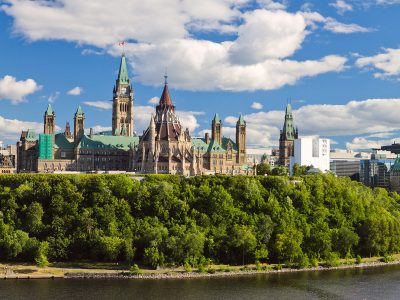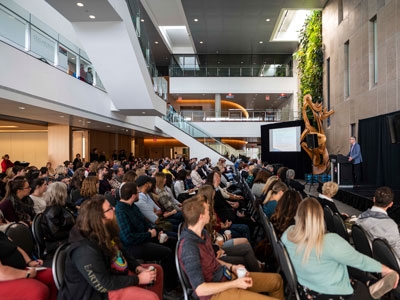By Matt Gergyek
Photos by Chris Roussakis
Minister of Environment and Climate Change Catherine McKenna visited Carleton University to announce an investment of $350,000 in a timely research project focused on sustainable living, the latest in a wealth of research efforts tackling the health of our planet and climate change.
The project aims to help the construction industry design and build more energy-efficient buildings by studying and modelling occupant behaviour to predict patterns of energy consumption. The team hopes the research will be used to influence future editions of the National Energy Code.
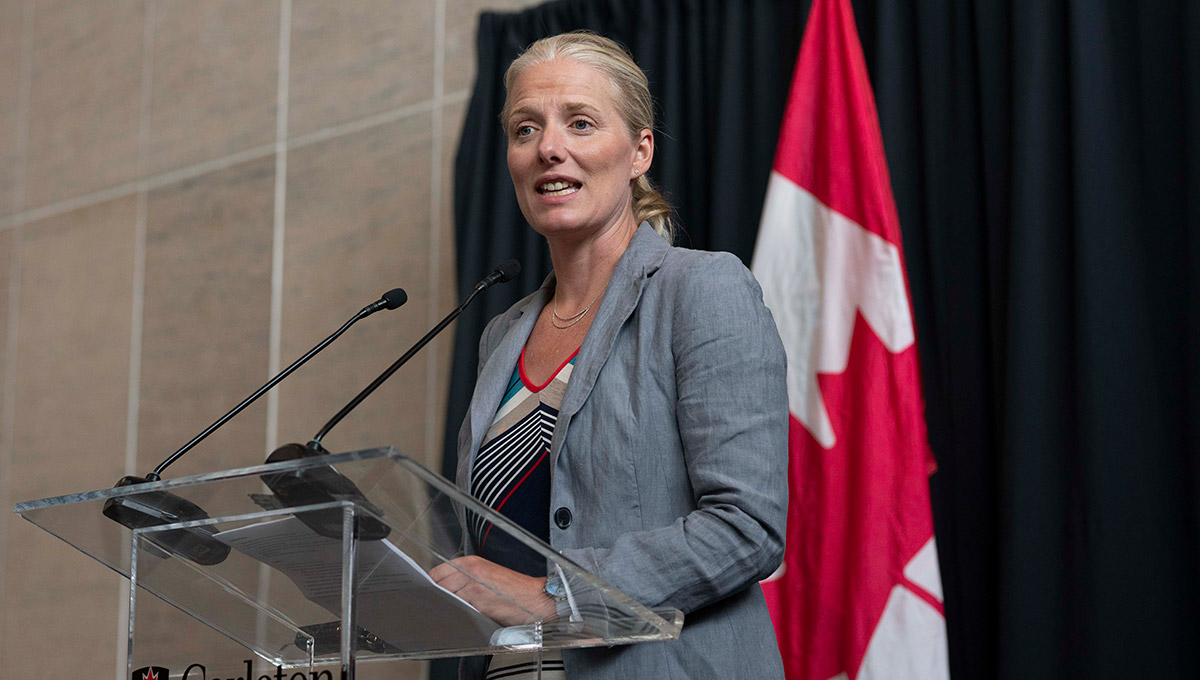
Minister of Environment and Climate Change Catherine McKenna announces a research investment of $350,000.
“This is the way of the future and it’s happening right here at Carleton University. I couldn’t be more proud,” said McKenna, who was making the announcement on behalf of Natural Resources Minister Amarjeet Sohiminister. “We can ensure a more sustainable future for our children and grandchildren.”
The research is led by three Carleton Engineering professors, Liam O’Brien, Burak Gunay and Ian Beausoleil-Morrison, along with three post-doctoral fellows, Sara Gilani, Mohamed Ouf, and Aly Abdelalim, and PhD student Tareq Abuimara.
It has immense potential to benefit Canada’s environment and economy: buildings and homes are responsible for about 17 per cent of Canada’s greenhouse gas emissions, according to the Government of Canada.
“Considering the large environmental and economic impact of the building sector in Canada, it is imperative that we develop economically feasible, energy-efficient and sustainable design solutions for our commercial, institutional and residential buildings,” said Gunay.
“Climate change “is one of the greatest challenges of our time,” said Carleton President Benoit-Antoine Bacon.
“I’m very proud to say Carleton is leading the way when it comes to reducing our impact on the environment.”
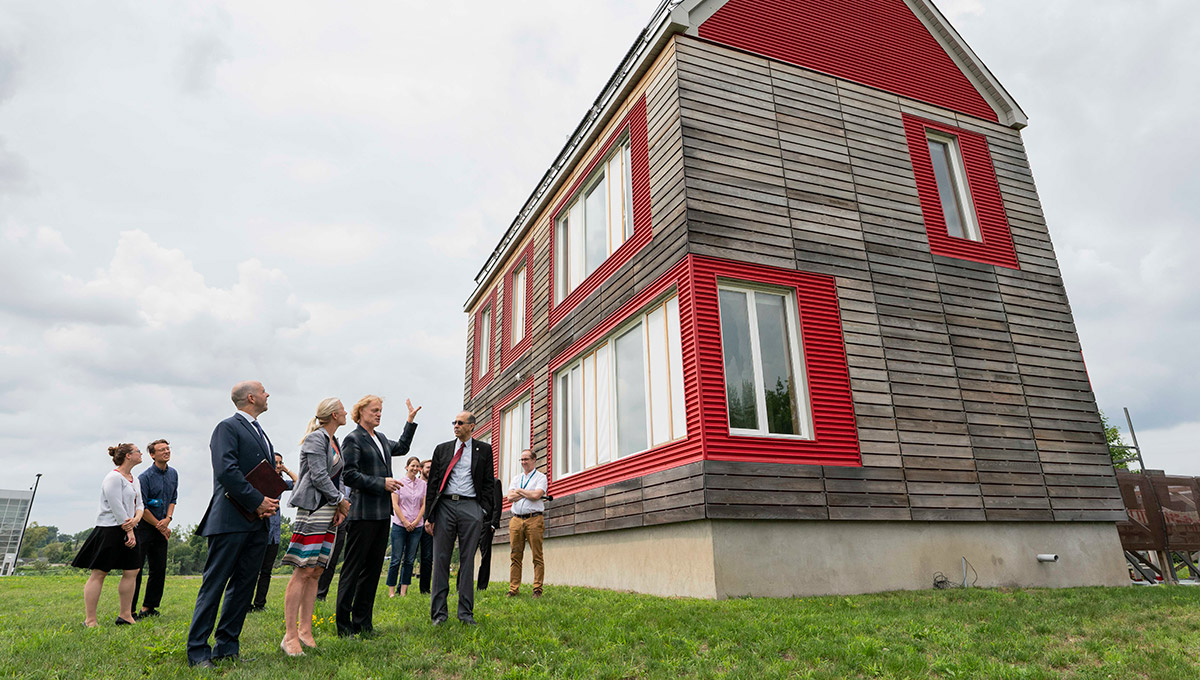
Smart Energy:
From Knowledge to Change
The project is transferring scientific knowledge into concrete change via case studies, training workshops and industry-targeted publications.
For example, the researchers are currently following the design process of a Toronto office building, interviewing the design team to develop and report on occupant considerations.
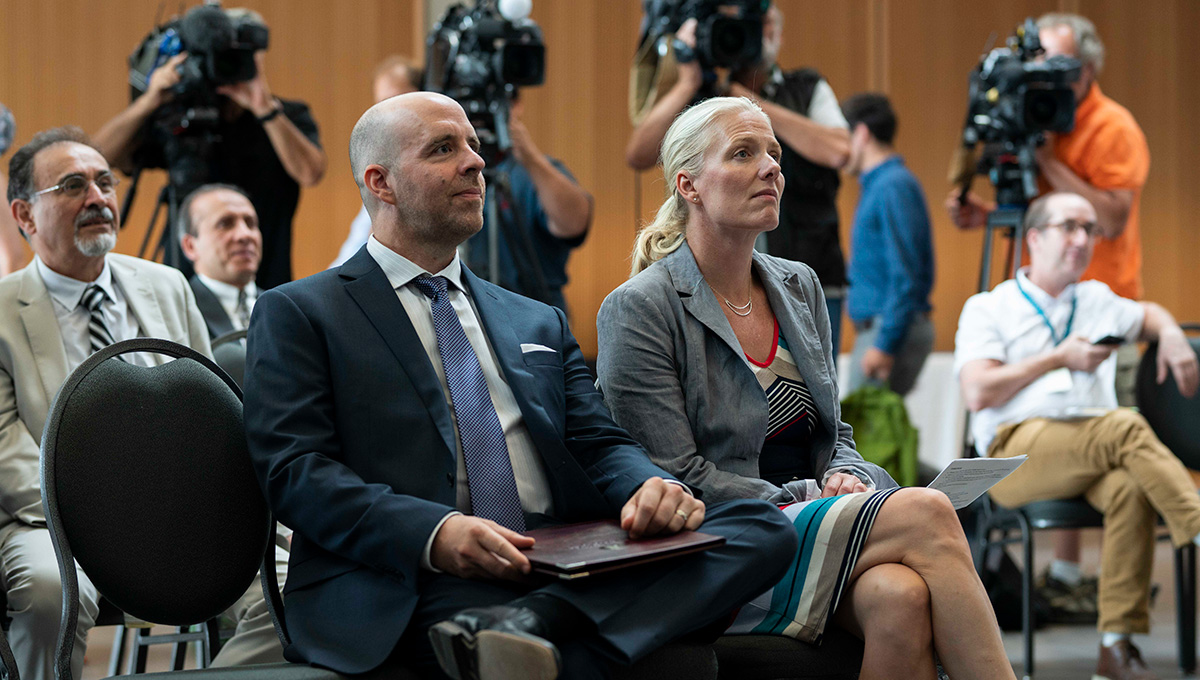
Another key strength of the project, the research team says, is collaboration.
“It’s bringing together industry, government and academics to solve a complex and urgent problem,” Gunay said.
Other partners include Rowan Williams Davies & Irwin Inc. (RWDI), Autodesk and the National Research Council (NRC).
Following the funding announcement, McKenna toured Carleton’s Urbandale Centre for Home Energy Research, a two-storey red building and a fully functional experimental facility where students and faculty study novel ways to reduce the reliance of Canadian housing on conventional energy sources.
Inside the facility, faculty and students showed McKenna the innovative ways they are examining to construct better, more environmentally friendly homes.
“Our faculty and students are conducting this research across our various facilities and disciplines . . . to solve real-world problems and help pave the way for a low-carbon future,” said Rafik Goubran, vice-president (Research and International).
Carleton faculty and students are heavily engaged in climate change and environmental research, whether they’re measuring the levels of methane emission in central Canada, learning how to build roads, railways and structures on permafrost, or studying and building tiny homes to help reduce environmental footprints.
Carleton’s recently updated master energy plan will help the campus continue to become more energy efficient and environmentally conscious. Carleton ranked as the second most environmentally friendly post-secondary school in Canada by the UI Green Metric World University Rankings.
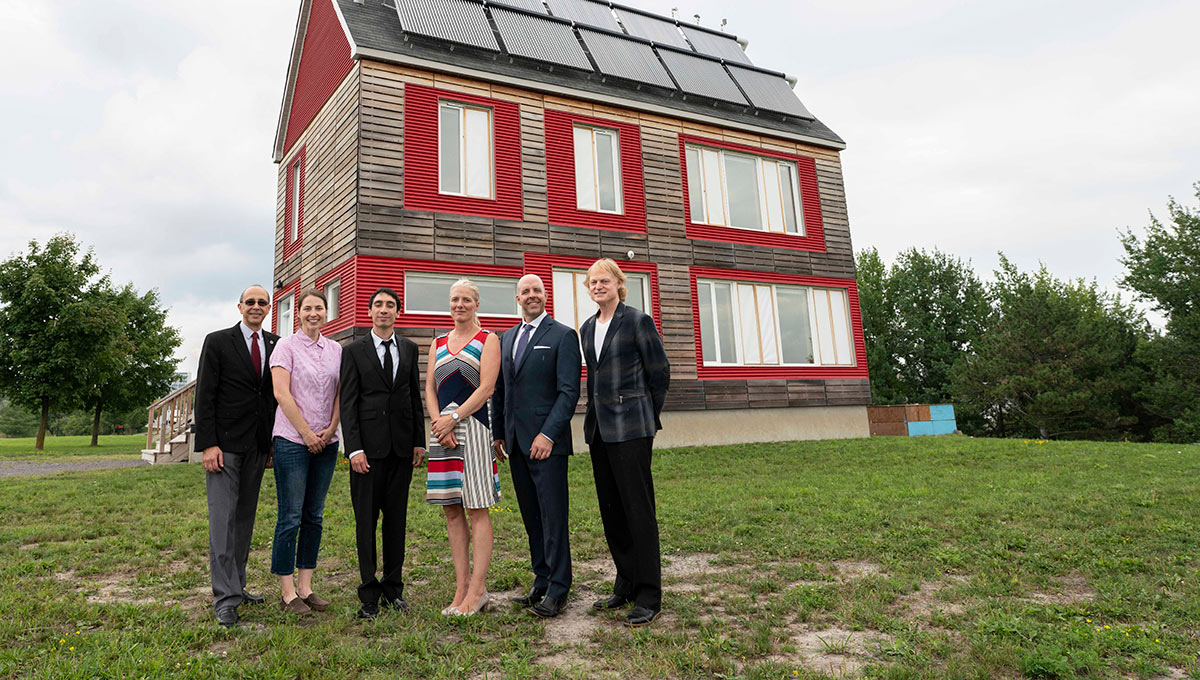
Wednesday, August 15, 2018 in Environment and Sustainability, Faculty of Engineering and Design, Research
Share: Twitter, Facebook
